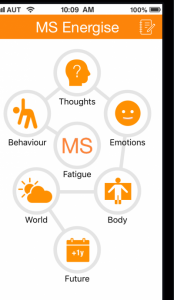A series of posts highlighting BU’s impact case studies for REF 2021. (The full impact case studies will be published on the REF website summer 2022.)
 Reducing the impact of fatigue in people with multiple sclerosis using a novel fatigue-management programme
Reducing the impact of fatigue in people with multiple sclerosis using a novel fatigue-management programme
Research areas: Health Care, Digital Health, Psychology & Computing
Staff conducting research: Professor Peter Thomas, Dr Sarah Thomas, Dr Andy Pulman, Dr Sarah Collard, Dr Huseyin Dogan, Dr Nan Jiang
Background: Drug treatments for fatigue for people with multiple sclerosis (PwMS) are not always effective and, although cognitive behavioural therapy has proved helpful for other conditions, there was a lack of evidence supporting its use for managing MS fatigue. BU researchers conducted a scoping exercise (funded by the MS Society) and a Cochrane review, which confirmed the evidence gap in psychological treatments for MS fatigue. Thomas and her team worked with Poole Hospital to develop FACETS (Fatigue: Applying Cognitive behavioural and Energy effectiveness Techniques to LifeStyle), a group-based fatigue management programme, designed to be easily implemented in clinical practice. The MS Society also commissioned the team to explore the digital delivery of the programme and a protoype Android app was developed and tested.
The impact: An estimated 13,931 PwMS in the UK have participated in FACETS programmes, and the CEO of the MS Society confirms: “Our feedback from people with MS has shown the positive impact that the FACETS programme has on their lives, making a real difference”. The MS Society also supported the national roll-out of FACETS via delivery of a one-day facilitator training course developed by the research team, which has so far trained more than 300 healthcare professionals in the UK. FACETS was included in the National Institute for Health and Care Excellence (NICE) guidelines for managing MS, and the MS Society website recommends its use. The impact of FACETS is global – it is being delivered in Ireland, Germany, Denmark, France and Australia, and the programme also been used or adapted for use in Spain, Argentina, New Zealand, Tasmania and New Jersey, USA.
 Defeating the pirates: creating a technical guide to support EU law enforcement agencies in combatting audiovisual piracy
Defeating the pirates: creating a technical guide to support EU law enforcement agencies in combatting audiovisual piracy
Research area: Computing & Informatics
Staff conducting research: Professor Vasilis Katos
Background: Cyber attribution involves processes in the tracking and identification of perpetrators using computer networks for hacking or conducting other crimes. In 2018, audiovisual (AV) piracy generated more than €940m in unlawful revenue in Europe alone. The European Union Intellectual Property Office (EUIPO) commissioned a technical guide to combat illegal Internet Protocol TV (IPTV) – television content formatted for internet delivery. Three areas of research undertaken by BU and academic collaborators – malware forensics, open-source intelligence and digital forensics – provided the basis for the 217-page guide, which underwent a three-month review by industry experts such as Sky and BT, law enforcement agencies and the European Agency for Criminal Justice Cooperation.
The impact: The final version of the guide was distributed to all EU law enforcement organisations, who now use it in IPTV investigations; it is also included in training material by the European Union Agency for Law Enforcement Training. In 2019, the guide supported operations by six EU member states to dismantle an international criminal network responsible for IPTV crime, with estimated damages of €6.5m. Last year it helped in the closure of an illegal international service, with more than 2m subscribers, representing an estimated €15m in profits for the criminal network. The guide also demonstrates how to identify pirate services and, for the first time, maps the illegal online video streaming ecosystem. The UK Intellectual Property Office said: ‘research conducted by BU has been critically important in providing a credible and collective analysis of how the environment of online streaming is both used and abused’ and has already identified the potential for transferring the research to other areas of IP crime.
Next post: saving an iconic freshwater fish from extinction and improving wellbeing with multi-sensory art installations.
 BU Briefing – Fatigue management programme for people with multiple sclerosis
BU Briefing – Fatigue management programme for people with multiple sclerosis New research shows that active gaming technology could help people with Multiple Sclerosis
New research shows that active gaming technology could help people with Multiple Sclerosis










 Second NIHR MIHERC meeting in Bournemouth this week
Second NIHR MIHERC meeting in Bournemouth this week Dr. Ashraf cited on ‘Modest Fashion’ in The Guardian
Dr. Ashraf cited on ‘Modest Fashion’ in The Guardian NIHR-funded research launches website
NIHR-funded research launches website MSCA Postdoctoral Fellowships 2025 Call
MSCA Postdoctoral Fellowships 2025 Call ERC Advanced Grant 2025 Webinar
ERC Advanced Grant 2025 Webinar Horizon Europe Work Programme 2025 Published
Horizon Europe Work Programme 2025 Published Horizon Europe 2025 Work Programme pre-Published
Horizon Europe 2025 Work Programme pre-Published Update on UKRO services
Update on UKRO services European research project exploring use of ‘virtual twins’ to better manage metabolic associated fatty liver disease
European research project exploring use of ‘virtual twins’ to better manage metabolic associated fatty liver disease